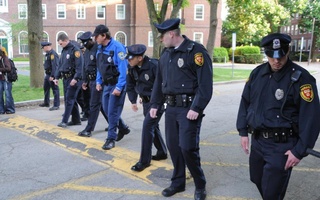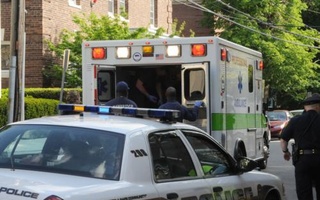This past May, Harvard University became the target of a wrongful death suit for the 2009 shooting of Justin D. C. D. Cosby, a Cambridge resident, in the basement of Kirkland House. The person eventually accused of the shooting, Jabrai Jordan Copney, had been living in Lowell House with his girlfriend, Brittany J. Smith, for most of the year before the shooting, despite Harvard’s prohibition against non-Harvard affiliated persons living in the dormitories. Harvard’s negligence in enforcing its own policy became the grounds upon which Cosby’s mother brought the suit, stating that there was a chance that her son’s death could have been prevented had the resident dean of Lowell and the two Lowell House Masters—all defendants in her suit—been more attentive.
Harvard recently filed a motion to have the suit dropped, claiming that there was not sufficient grounds to support it. In a memorandum, the University listed many reasons that Harvard should not be held accountable, with the underlying sentiment being that Harvard cannot be held legally responsible for the fates and for the actions of non-Harvard affiliates.
Though Lowell House administrators did show a marked neglect of Harvard’s policies in overlooking Copney’s presence in the House, Harvard cannot be held responsible for a crime upon which it had no proximate influence. It is true that Copney violated a Harvard rule by living in Lowell House and that the crime was largely a result of Cosby’s relationship with members of the Harvard community, but there is nothing to suggest that Cosby would not have been shot had Copney been staying elsewhere. Copney was sufficiently enmeshed in the Harvard community that had he been living somewhere in Greater Boston, chances are that he would still have spent a good deal of time on Harvard’s campus, would still have had swipe access to the dorms due to his relationship, and this crime still could have taken place. Though Harvard’s negligence in enforcing its dormitory policy did indeed facilitate the crime, it cannot be said to have contributed to the crime in a very meaningful way.
Furthermore, we cannot expect Harvard to be able to regulate everything that happens on campus. We are an urban campus that is not physically isolated from the larger community, and as such the administration has a lack of control over the campus that would not be true were the campus more contained and located further from a city center.
Of course Cosby’s death was tragic, and his mother has every reason for wanting to see justice achieved for her son. However, the three men charged for Cosby’s murder are already behind bars, and there is no reason to bring a lawsuit against a second party. As a result, ultimately the only sensible course of action that the judge can take is dismissal of the suit.
Read more in Opinion
Engineering Problems?Recommended Articles
-
Prosecutors Identify Alleged Kirkland GunmanProsecutors revealed Monday which of three suspects arrested in recent months they believe pulled the trigger in a fatal Kirkland
-
Former Harvard Student Indicted on Charges Related to Kirkland ShootingBrittany J. Smith '09, the former Harvard student implicated in last year's shooting in Kirkland House, pleaded not guilty on accessory and firearms charges during her arraignment on Tuesday.
-
 A Silent Aftermath
A Silent Aftermath -
 Kirkland Shooting Trial Date Set for April
Kirkland Shooting Trial Date Set for April -
Kirkland Shooting Victim's Mother Sues HarvardThe mother of a 21-year-old man who was fatally shot in a Harvard dormitory three years ago claims that Harvard’s negligence in allowing a drug dealer to live in Lowell for months led to the wrongful death of her son.
-
Harvard Seeks To Dismiss Cosby Civil SuitFacing a lawsuit faulting the University and Lowell House administrators for the death of a 21-year-old man on Harvard’s campus in 2009, Harvard said in a legal filing last week that it cannot be blamed for the death of a non-student drug dealer who was killed during a transaction in Kirkland House.













